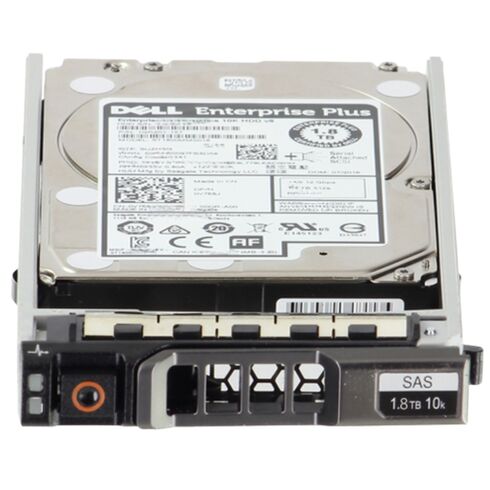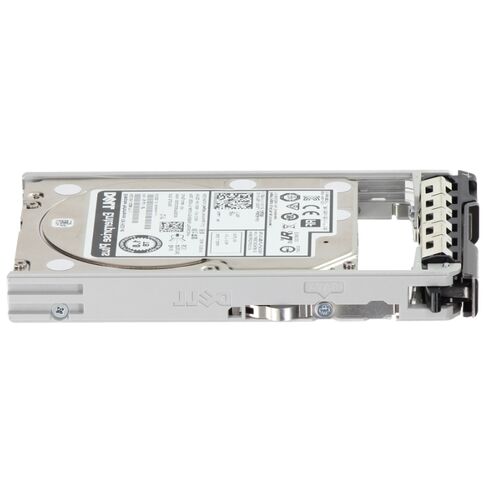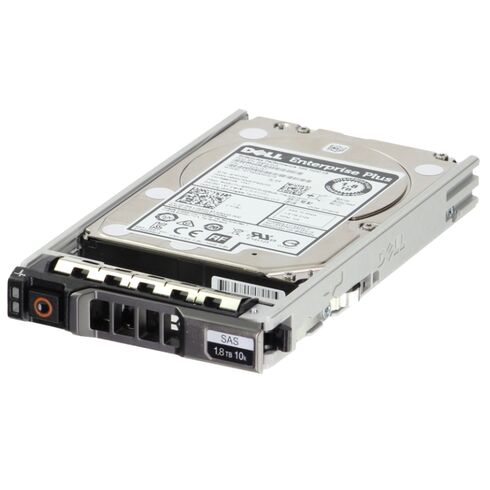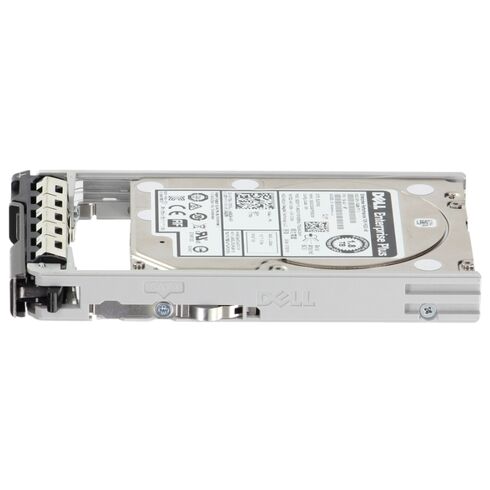0WRRF Dell 1.8TB 10K RPM SAS-12GBPS 128MB 512E SFF Hard Drive
- — Free Ground Shipping
- — Min. 6-month Replacement Warranty
- — Genuine/Authentic Products
- — Easy Return and Exchange
- — Different Payment Methods
- — Best Price
- — We Guarantee Price Matching
- — Tax-Exempt Facilities
- — 24/7 Live Chat, Phone Support
- — Visa, MasterCard, Discover, and Amex
- — JCB, Diners Club, UnionPay
- — PayPal, ACH/Bank Transfer (11% Off)
- — Apple Pay, Amazon Pay, Google Pay
- — Buy Now, Pay Later - Affirm, Afterpay
- — GOV/EDU/Institutions PO's Accepted
- — Invoices
- — Deliver Anywhere
- — Express Delivery in the USA and Worldwide
- — Ship to -APO -FPO
- — For USA - Free Ground Shipping
- — Worldwide - from $30
Same product also available in:
| SKU/MPN | Warranty | Price | Condition | You save |
|---|---|---|---|---|
| 0WRRF | 1 Year Warranty | $57.00 | Excellent Refurbished | You save: $19.95 (26%) |
| 0WRRF | 1 Year Warranty | $223.00 | New Sealed in Box (NIB) | You save: $78.05 (26%) |
Overview of the Dell 0WRRF
- The DELL 1.8TB 10000RPM SAS 12Gbps 128MB Buffer 512e 2.5-inch Hot Swap Hard Drive with Tray is designed for high-performance servers, ensuring rapid data access and reliability. This device is perfect for use with 14G PowerEdge and PowerVault servers.
General Specifications
- Manufacturer: DELL
- Part Number: 0WRRF
- Type: Hard Disk Drive with Tray
Technical Characteristics
Device Features
This hard drive supports:
- Device Type: Hot-swap Hard Drive
- Storage Capacity: 1.8 TB
- Interface: SAS 12Gb/s
- Form Factor: 2.5 Inch
- Technology: Advanced Format Technology
Performance Metrics
Key performance indicators include:
- Data Transfer Rate: 1200 Mbps (External)
- Spindle Speed: 10000 RPM
Connectivity and Expansion
Interface Options
This device features:
- Interfaces: 1 x SAS 12Gb/s
- Compatible Bays: 1 x Hot-swap - 2.5 Inch
System Compatibility
The DELL hard drive is compatible with the following server models:
- PowerEdge C6420
- PowerEdge R440
- PowerEdge R640
- PowerEdge R6415
- PowerEdge R740
- PowerEdge R740xd
- PowerEdge R7415
- PowerEdge R7425
- PowerEdge R840
- PowerEdge R940
- PowerEdge R940xa
- PowerVault NX3240
Capacity
The Dell 1.8TB 10K RPM SAS-12GBPS 128MB 512E SFF Hard Drive is designed to provide users with a large storage capacity of 1.8TB. This substantial amount of storage allows users to store a vast amount of data, including documents, photos, videos, and more.
Benefits of the 1.8TB Capacity
1. Ample Storage Space: With a capacity of 1.8TB, this hard drive offers more than enough room for users to store their files and applications. It is particularly beneficial for individuals or businesses dealing with large amounts of data, such as multimedia files or databases.
2. Enhanced Productivity: Having a high-capacity hard drive means users can keep all their essential data in one place, eliminating the need for multiple drives or cloud storage services. This convenience leads to improved productivity as users can easily access and manage their files without wasting time searching for them.
3. Future-Proofing: As technology advances, file sizes continue to increase, requiring more storage space. By investing in a hard drive with a capacity of 1.8TB, users can future-proof their storage needs and ensure they have enough space to accommodate their growing data requirements.
Importance of the 1.8TB Capacity
1. Business Applications: Businesses often deal with large amounts of data that need to be stored and accessed frequently. The 1.8TB capacity of this hard drive allows businesses to store critical information without worrying about running out of space.
2. Multimedia Professionals: Photographers, videographers, and content creators often work with large file sizes due to high-resolution images and videos. The 1.8TB capacity ensures they have plenty of space to store their media files securely.
3. Data Backup: It is crucial to have sufficient storage capacity for backing up important data. With 1.8TB, users can create regular backups of their files, ensuring the safety and availability of critical information.
Additional Considerations
1. Scalability: The 1.8TB capacity of this hard drive allows users to scale their storage needs as their requirements grow. They can easily add more drives or upgrade to larger capacities if necessary.
2. Cost-Effective Solution: Although larger capacities often come at a higher price, the 1.8TB capacity strikes a balance between storage needs and affordability. It offers a sufficient amount of space without breaking the bank.
3. Consolidation: Having a single hard drive with a large capacity eliminates the need for multiple smaller drives, simplifying hardware management and reducing clutter.
Speed
The Dell 1.8TB 10K RPM SAS-12GBPS 128MB 512E SFF Hard Drive features a speed of 10,000 revolutions per minute (RPM). This high rotational speed contributes to faster data access and transfer rates, providing users with enhanced performance and efficiency.
Benefits of the 10K RPM Speed
1. Improved Data Access: The higher RPM of this hard drive allows for quicker access to data stored on the disk. This is particularly beneficial for applications that require frequent read and write operations, such as databases or virtual machines.
2. Faster Boot Times: With a faster rotational speed, the hard drive can read and load the operating system and other essential files more quickly. This results in reduced boot times, allowing users to start using their system or application promptly.
3. Reduced Latency: The 10K RPM speed helps reduce latency, which is the delay between requesting data and receiving it. Lower latency leads to improved responsiveness and smoother performance in demanding tasks.
Importance of the 10K RPM Speed
1. Gaming Performance: Gamers often require fast storage to ensure smooth gameplay and reduced loading times. The 10K RPM speed of this hard drive contributes to faster game loading and reduces in-game stutters.
2. Content Creation: Video editing and rendering applications often involve working with large files. The higher RPM speed allows for faster data access, enhancing the editing process and overall productivity for content creators.
3. Server Environments: In server environments, where multiple users access data simultaneously, a high RPM speed ensures efficient data retrieval. This is crucial for maintaining smooth operations and preventing bottlenecks.
Additional Considerations
1. Compatibility: It is essential to ensure compatibility between the 10K RPM hard drive and the system it will be installed in. Users should verify that their system supports this speed to maximize performance benefits.
2. Noise and Power Consumption: Higher RPM speeds can result in increased noise and power consumption compared to lower RPM drives. Users should consider these factors when choosing a hard drive based on their specific requirements.
3. RAID Configurations: When using multiple hard drives in a RAID (Redundant Array of Independent Disks) configuration, it is recommended to have consistent RPM speeds across all drives for optimal performance.
Interface
The Dell 1.8TB 10K RPM SAS-12GBPS 128MB 512E SFF Hard Drive features a SAS-12GBPS interface, which stands for Serial Attached SCSI with a data transfer rate of 12 Gigabits per second (Gbps). This interface provides users with high-speed data transfer capabilities and reliable connectivity.
Benefits of the SAS-12GBPS Interface
1. Faster Data Transfer: The SAS-12GBPS interface offers significantly faster data transfer rates compared to traditional SATA interfaces. This high-speed connectivity allows for quick and efficient transfer of large files, reducing waiting times and increasing productivity.
2. Scalability and Flexibility: The SAS interface supports daisy-chaining multiple devices, enabling users to connect multiple hard drives or other SAS-compatible devices in a scalable manner. This flexibility is particularly advantageous in enterprise-level storage systems.
3. Enhanced Reliability: SAS interfaces are known for their robust and reliable performance. They feature advanced error checking and correction capabilities, ensuring data integrity during transmission. This reliability is crucial for critical applications or systems that require constant data availability.
Importance of the SAS-12GBPS Interface
1. Enterprise Storage Systems: The SAS interface is widely used in enterprise-level storage systems due to its high performance, reliability, and scalability. It is well-suited for demanding environments where data access speed and uptime are critical.
2. Server Applications: Servers often handle multiple requests simultaneously, necessitating high-speed data transfer between storage devices. The SAS-12GBPS interface allows servers to deliver data quickly, maintaining smooth operations.
3. Data-Intensive Tasks: Tasks such as data analytics, virtualization, or scientific simulations often involve processing large datasets. The SAS interface ensures efficient data transfer, reducing the time required for these resource-intensive operations.
Additional Considerations
1. Compatibility: Before purchasing a hard drive with a SAS interface, users should ensure that their system or storage controller supports this interface type to avoid compatibility issues.
2. Cable Length Limitations: Unlike SATA interfaces, SAS interfaces have specific cable length limitations due to signal integrity considerations. Users should adhere to the recommended cable lengths for optimal performance.
3. Cost: SAS drives generally come at a higher price compared to SATA drives due to their advanced features and performance capabilities. Users should consider their budget and specific requirements when choosing between different interface options.
Cache
The Dell 1.8TB 10K RPM SAS-12GBPS 128MB 512E SFF Hard Drive is equipped with a 128MB cache. The cache acts as a temporary storage area for frequently accessed data, improving overall system performance and responsiveness.
Benefits of the 128MB Cache
1. Faster Data Access: The cache stores frequently accessed data, allowing for quicker retrieval. This results in improved overall system performance, as the hard drive can quickly provide data that is already stored in the cache.
2. Reduced Latency: By storing commonly accessed data in the cache, the hard drive can reduce latency and access times. This is particularly beneficial for applications that require quick access to small files or frequently used data.
3. Enhanced Multi-Tasking: The cache helps improve multi-tasking capabilities by providing faster access to data required by different applications simultaneously. This allows users to work with multiple applications smoothly without experiencing performance degradation.
Importance of the 128MB Cache
1. Database Applications: Databases often require fast access to frequently accessed data. The 128MB cache improves database performance by reducing access times, leading to quicker query responses and improved overall efficiency.
2. Operating System Performance: The cache plays a vital role in improving the performance of the operating system by storing frequently accessed system files. This allows for faster boot times, application launches, and overall system responsiveness.
3. Virtualization: Virtualized environments often involve running multiple virtual machines simultaneously. With a larger cache, the hard drive can provide faster access to commonly used virtual machine images, enhancing overall virtualization performance.
Additional Considerations
1. Write Caching: Cache can also be used for write caching, where data is temporarily stored in the cache before being written to the disk. This can improve write performance, especially when dealing with small or random write operations.
2. Power Loss Protection: Some hard drives with cache also feature power loss protection mechanisms to ensure data integrity in case of unexpected power outages. Users should consider this feature if data reliability is a priority.
3. Cache Size Trade-Offs: While a larger cache generally provides better performance, it is essential to consider the specific workload and usage patterns. In some cases, a smaller cache may be sufficient, and investing in other features or capacities may be more beneficial.
Form Factor
The Dell 1.8TB 10K RPM SAS-12GBPS 128MB 512E SFF Hard Drive features a Small Form Factor (SFF). This compact form factor ensures compatibility with a wide range of systems and allows for efficient use of space within the system enclosure.
Benefits of the SFF Form Factor
1. Space Savings: The SFF form factor takes up less physical space compared to larger form factors, making it ideal for systems with limited space or those requiring high-density storage configurations. It allows for more efficient use of available space within the system enclosure.
2. Improved Airflow and Cooling: The smaller size of SFF hard drives allows for better airflow within the system enclosure. This improved ventilation helps in maintaining optimal operating temperatures, reducing the risk of overheating and improving overall system reliability.
3. Expandability: The compact size of SFF drives enables users to install multiple drives within a limited space, facilitating future expansion without the need for additional enclosures or modifications. This scalability is particularly beneficial in systems that require high storage capacities.
Importance of the SFF Form Factor
1. Enterprise Storage Solutions: Enterprise-level storage systems often require high-density configurations to accommodate large amounts of data within limited rack space. The SFF form factor allows for efficient utilization of available rack space, contributing to cost savings and improved storage density.
2. Compact Workstations: Small form factor hard drives are commonly used in compact workstations or small form factor PCs. These systems benefit from the space-saving nature of SFF drives, allowing for sleek and compact designs without compromising storage capacity.
3. Data Centers: Data centers often house a large number of storage devices in limited space. The SFF form factor enables data centers to maximize storage density while ensuring optimal airflow and cooling for reliable operation.
Additional Considerations
1. Compatibility: Users should ensure compatibility between the SFF hard drive and the system or enclosure it will be installed in. Some systems may only support specific form factors, and selecting the appropriate one is crucial for proper functioning.
2. Mounting Options: SFF hard drives often come with various mounting options, such as hot-swap or tool-less installation. Users should consider their specific requirements and choose a drive with the appropriate mounting features for easy installation and maintenance.
3. Storage Density Trade-Offs: While SFF drives offer space savings, they generally have lower capacities compared to larger form factors. Users should carefully consider their storage requirements and balance space savings with required storage capacity.
Part Number
The Dell 1.8TB 10K RPM SAS-12GBPS 128MB 512E SFF Hard Drive bears the part number 0WRRF. This unique identifier is essential for accurately identifying and procuring the specific hard drive model, ensuring compatibility and easy replacement if required.
Benefits of the 0WRRF Part Number
1. Accurate Identification: The part number serves as a unique identifier for the Dell 1.8TB 10K RPM SAS-12GBPS 128MB 512E SFF Hard Drive model. It allows users, support teams, or procurement departments to precisely identify the required hard drive and avoid confusion with other models.
2. Compatibility Assurance: The part number ensures compatibility between the hard drive and the system it will be installed in. Users can cross-reference the part number with system specifications or compatibility lists to ensure a seamless fit and proper functioning.
3. Easy Replacement: In case of failure or the need for an upgrade, having the part number readily available simplifies the replacement process. It allows users to quickly procure an identical or compatible replacement without unnecessary delays or compatibility issues.
Importance of the 0WRRF Part Number
1. Maintenance and Support: IT departments or service providers often rely on part numbers to accurately maintain, track, and support hardware components. The 0WRRF part number ensures seamless integration into existing support processes and easy identification for troubleshooting or warranty claims.
2. Scalability and Expansion: When expanding storage capacity or upgrading systems, having the correct part number ensures compatibility with existing components. It enables users to expand their storage infrastructure while maintaining uniformity and compatibility across multiple drives.
3. Procurement Efficiency: For businesses or individuals procuring multiple hard drives, having specific part numbers simplifies the ordering process. It eliminates ambiguity and ensures that the correct hard drive model is procured, reducing the risk of errors or compatibility issues.
Additional Considerations
1. Product Lifecycle Management: Part numbers also play a vital role in product lifecycle management, allowing manufacturers to track and manage inventory, conduct quality control, and provide accurate documentation for specific models.
2. Version Differentiation: Part numbers often incorporate information about different versions or revisions of a specific product. Users should verify that they have the correct version of the hard drive based on the part number to ensure compatibility with their system.
3. Warranty Validation: Manufacturers often use part numbers to validate product warranties. Users should retain the part number information for warranty claims or repairs to ensure a smooth and efficient process.













